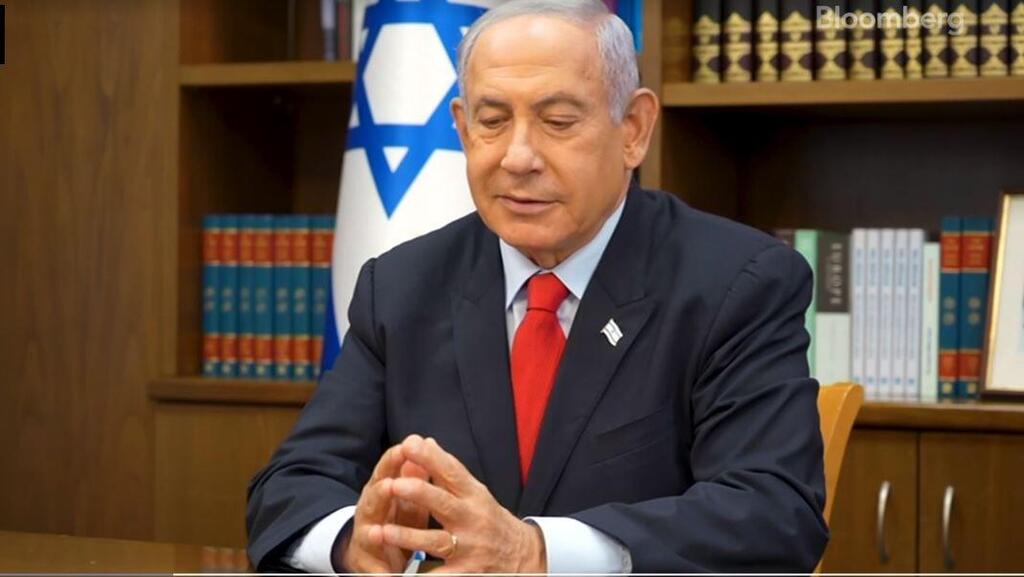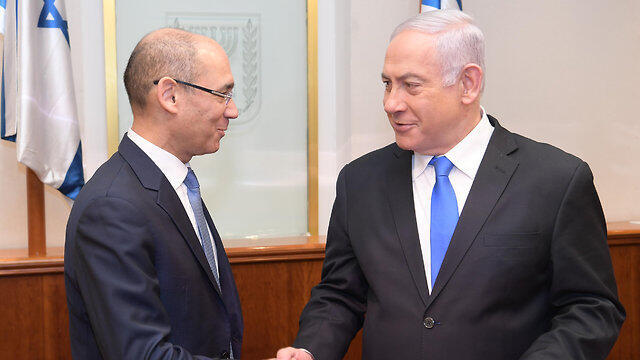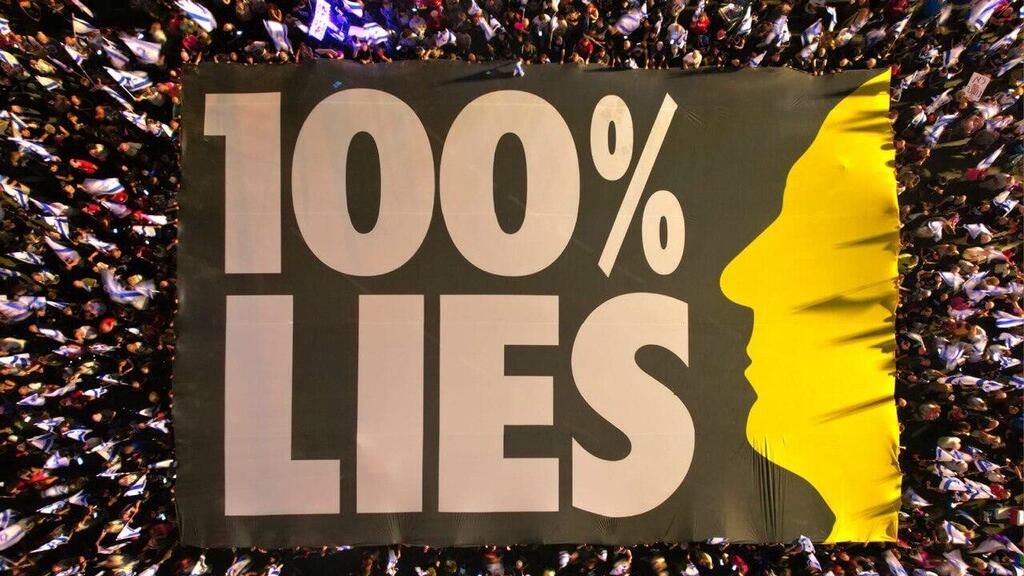Prime Minister Benjamin Netanyahu said he believes that the normalization of relations with Saudi Arabia will bring enormous opportunities for investors. "We're about to see a pivot in history. We have an economic corridor of energy transport and communications that naturally goes through our geography from Asia to the Arabian Peninsula to Europe. We are going to realize that. By the way, we're going to realize that whether we have formal peace or not," he said in an interview.
More stories:
Speaking to Bloomberg News on Sunday, in one of dozens of interviews he gave to international media outlets in recent weeks, the prime minister would not say what concessions he would be willing to make to the Saudis in negotiations. "I am not willing to give anything that will endanger Israel's security," Netanyahu said.
3 View gallery


Prime Minister Benjamin Netanyahu in an interview on Bloomberg News on Sunday
(Photo: Screenshot)
The prime minister said he did not believe that his far-right government's policies on the West Bank would be an impediment.
"I think the Palestinian thing was brought in all the time, it was always brought in; it is sort of a check box, you have to check it to say that you're doing it. Is that what is being said in corridors? Is that what is said in discrete negotiations? A lot less than you think," he said adding that "If there is the political will there will be a political way" to achieve a normalization agreement.
In an attempt to calm the concerns of potential investors after mass protests against his legislation to change the balance of power between lawmakers and the judiciary that have been taking place for the past 31 weeks, Netanyahu said that when the dust settles, Israel will emerge a stronger democracy.
"I think right now what you're seeing is the natural conflict between two opposing views that have not yet meshed, but they will mesh," he said.
The prime minister insisted that, despite comments by ministers in his government, he supports the independence of the chairman of the Bank of Israel, Amir Yaron, whom he appointed and who was among the first to warn of the economic ramifications of the government's legislative push to curb the power of the Supreme Court.
Yaron had come under attack from coalition partners and members of Netanyahu's own ruling Likud Party, who accused him of failing to lower Israel's inflation. One minister even called him a "savage" for raising interest rates.
3 View gallery


Amir Yaron was appointed chariman of the Bank of Israel by Benjamin Netanyahu
(Photo: GPO)
But Netanyahu would not commit to extending the chairman's tenure, although he insisted that he had vigorously guarded the independence of the central bank. "You would not believe this, but I've just not had the opportunity to discuss that," he said.
ISRAEL EASING ENTRY FOR GAZAN AMERICANS




